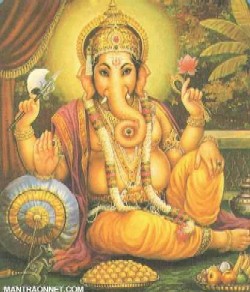 Awhile back, I started writing a book with some friends, and one of those friends said to me that he wanted it to be the caliber of the bestseller Eat. Pray. Love. “We’re talking New York Times Bestseller List,” he said. I gulped, since I was supposed to do the lion’s share of the writing.
Awhile back, I started writing a book with some friends, and one of those friends said to me that he wanted it to be the caliber of the bestseller Eat. Pray. Love. “We’re talking New York Times Bestseller List,” he said. I gulped, since I was supposed to do the lion’s share of the writing.
Well, my own book is still in process, partially because I quickly discovered that group process via writing doesn’t work, and partly because I was never entirely able to figure out what the hell he meant (about EPL, that is)…in addition to which, the book I was writing didn’t seem to want to be what he said it ought to be. But I finally talked myself into reading the book said friend wanted me to write, terrified because it was supposed to be such a great read, so profound, and so well-written, and I was fairly sure I could never measure up.
<Sigh>
Well, friends, it just wasn’t all that great. I really wanted it to be, because then that might have inspired me, and I think if I’d read it when I was in my twenties or thirties (as I assume the author was), then perhaps I would have been terribly impressed. As it was, though, it struck me as a book that should have been entitled The Cosmo Girl Seeks Enlightenment or some such. And oh, this is such a snarky thing to say, but. . . the entire process seemed to have been an exercise in narcissism.
Most of all, though, I wondered about all the truly great literature that never makes a dime, while The Cosmo Girl, etc., evidently made a bundle.
Now, having gotten that off my chest, I will say that the author is probably a truly sincere seeker (at her own level), and did indeed do a reasonably good job illustrating the fruits of her search. The book had numerous rather charming moments and a few truly lovable characters. She was just. . . young. It seems that life gave her what she wanted, and it didn’t prove to be as great as she thought it would be, and so she became depressed and sought a divorce, and followed it with another obsessive, attention-seeking relationship with a like-minded man. For people in their twenties and thirties, that’s all pretty much the standard human experience, right? Please understand, I do not say this with malice, having been there.
Anyway, so our heroine figured out what she needed to make her happy–again–and she created–through an intricate series of events having to do with divorce lawyers–the means to make it all happen. She went to Italy and sought the experience of pleasure. She gorged herself on food and beauty and friendship; and well, who wouldn’t have felt better after all that pasta, wine and great art and architecture? She made some great friends, too.
It wasn’t enough, of course, but she had planned for that, and next she went to India (where do people get all that money?), to live in her guru’s ashram and seek an experience of the Divine Being. I must say, remembering the stories I’d heard about authentic Indian ashrams, I got the distinct impression that this was more of a resort than an ashram, although I gather that India, seeing a market for its age-old proficiency at the contemplative life, has been smart enough to create a market for us more affluent (and lazy, and luxury-loving) Westerners, and so the idea, here, was that if you want to find God, that’s where you have to go. I mean, we all know that. But don’t worry, it seems that at least some of the buildings were air-conditioned, and the food was really good, although not as good as pasta. Our Cosmo Girl was still having a great time, despite the despair (read: egotism) for which she sought remission. Despite the snarkiness mentioned above, I can honestly say, also, that she did have an authentic experience of awakening, and did a fairly good job of describing it. This is something I admire, because I decided, awhile back, that while one cannot and should not be able to find words for the ineffable, it is important to point out the Footprints of the Ox for those who come after. It is the least we can do, right?
After India, our heroine went to Bali, to live with a Shaman she’d met awhile back, and to seek balance. She was feeling pretty good by this time, as might be imagined, and it was here that she–so far, as I understand it–found True Love. I enjoyed her descriptions of all these places, of the people she met and the food she ate and the experiences she had, yet it was here that the story began to deflate a bit for me, and I realized what it was that had sort of disappointed me all along, and it was exactly what I’d said above: our heroine really wanted to find love, to find a human being who would fulfill her narcissistic desires for affiliation and happiness and sex, and well…why not? As I said, she was young, and when I was her age, I felt exactly the same. It is only now, when I am growing older and have become thoroughly disenchanted with my experience of the earth plane, that I am impatient with love stories that end with . . . human love. But when I was in my 30s, and awash in a sea of hormones and the urge to procreate, I’m sure I felt exactly as she did, although I find it interesting that our heroine was quite clear that she did not want children. Being an innate breeder and natural-born Mommy-type, it is tempting to cite that narcissistic designation again, but I am aware that people who have children tend to be judgmental of people who don’t choose to have them, so I should let that alone. Suffice it to say that, although the book had its pleasant and even charming moments, and much that I could relate to, I found it to be rather a waste of my time. It was interesting, however, to learn that this is what becomes a bestseller these days. I must say, I was much more reassured as to the fate of humanity when people loved Harry Potter than I was with the success of Eat. Pray . . .
Then I saw the film. Now I know that if I am ever in need of a sure way to waste about two-and-a-half hours, I will put that film in my Netflix queue, confident that it will do the trick. My husband and I read each other numerous examples of the reviews others had written about the film before we saw it, howling at the number of “one stars” given it, more than I’d seen any other film of my choice get, and we therefore approached it with curiosity and trepidation. I am pleased to report that it was not quite as bad as we had been led to believe, but it was pretty darned bad. I will say that Julia Roberts was not nearly as bad as I’d heard she was: the poor woman really did her darndest to play her part, and wasn’t afraid to look plain to do so, but…well, there just wasn’t much to hold on to, really. Whoever wrote the screenplay evidently thought it would not suffice to tell the writer’s story as written, but seemed determined to beef it up with angst and Hollywood in equal measures. I usually simply hate watching a film I’ve read the book for, because in my experience, the film never equals the book; the only films I can say I was completely satisfied with were the Lord of the Rings series, simply because although they didn’t quite follow Tolkien’s books, they were . . . complementary, in the best possible way. But back to Eat. Pray. Love. Again I sigh. I have never seen a film quite so divergent from the original writer’s story and words. In fact, the film actually caused me to appreciate the book more, simply because it was so bad it made the book look better by comparison. Julia Roberts didn’t have a chance. The only bright spot was Javier Bardem, who depicted a most lovely and lovable REAL MAN (in my opinion), although he didn’t strike me as remotely like the character of the Brazilian lover in the book. As far as the rest of it, the screenwriter seemed determined to leave out all that was meaningful and profound in the book–including the characters who had given the book the most life–and inject as much Hollywood angst and schmaltz as possible. Lucca Spaghetti became an inconsequential bald man, when he had been a fascinating and charming character in the book. And as for Richard from Texas, even more of a bright spot in the actual book for me, well . . . what a pity. His character alone could have carried the film. Instead, he became a watered-down James Garner who did indeed, as the main character herself said, speak Bumper Sticker. What on EARTH was the screenwriter thinking of??? Why was the experience of eating the “best pizza in the world” in Naples watered down to a less-than-profound dialogue about our heroine’s jeans? Why was the delightful and humorous attempt of Wayan to get our heroine to give her even more than the $18,000 she gave her completely left out? AND WHY ON EARTH was the trip to the island of parrots turned into a silly and vapid couple’s spat as an opportunity for our heroine to come to terms with her relationship issues? Perhaps an even better title for this film would haven been “How to Sacrifice a Huge amount of Money, Time and a Reasonably Decent Book on the Altar of Inconsequentiality.”
I am left with only one question: how does the author of this book, Liz Roberts, feel about the desecration that was made of her reasonably sweet and occasionally profound little novel (and it was little, metaphorically speaking)? Perhaps she has made so much money from the entire thing that she doesn’t care? Or perhaps I am being snarky, but if it was me, I don’t think I’d be able to sleep nights after selling my soul to the devil that is Hollywood to quite that extent.
My apologies to Liz Roberts, who probably is a Good Egg overall, and to anyone who simply loved the book, because I can see how that could be possible . . . all in all, though, Eat. Pray. Love. was on about the same level in the genre of spiritual literature as Eckhart Tolle’s books (and don’t get me started on him!). I would recommend, if you want something inspiring for your Netflix queue, Fierce Love, about our good friend Ram Dass, and for books, The Bread of Angels, another book I ought to write about, and probably will, now I think about it.


I never read the book, never had any intention of reading it and even less intention of ever seeing the movie. I applaud your determination to see the project through. I am not at all surprised at your analysis but I would add this bit. People need a place to start. Leaping from totally asleep to Samadhi meditations is probably not realistic. As I believe you pointed out in your own way. On the other hand, such vapid literature, including Tolle’s books by the way, does make me shudder. Thanks for verifying my opinion, created without even thinking by the simple reality of It’s a Best Seller. That is almost automatically a red flag for me.
On the other hand a book that did live up to the best seller plaudits for me was The Girl With the Dragon Tattoo. The movie was good too. Not in the least spiritual but a good read and a good watch.
Love, Musawwir
Musawwir, I feel kind of guilty being this cranky about it–after all, we’re both writers, and we know how that would feel, even from a nobody like me–and you’re entirely right, people have to start somewhere. Still…..
Anyway, you’re not the first to recommend the Girl with the Dragon Tattoo, so I’ll put that on my list. I really recommend Bread of Angels to you… It’s a rather literate version of Eat. Pray…and quite moving in parts, although it too turns into a “girl gets boy” thing in the end (darn it, when did I stop being romantic?!) Amidha
A spiritual memoir that will not disappoint: Take This Bread by Sara Miles. Not the slightest bit narcissistic, or trendy.
May I also recommend to you Bread of Angels…..
Nice! Who’s the author?
Bread of Angels is by Stephanie Saldana, (tilde over the ‘n’), published by Doubleday (how odd, come to think of it), and I thought it was a truly wonderful account of a young woman’s year(s) in Syria as a Fulbright Scholar; she went there to learn Arabic so she could study the similarities between Christianity and Islam… and her account of her time there was very moving, to me, at least. I think that if THAT became a bestseller, I would stop wanting to find another planet to live on.
Very nice! I’ll look it up.
Yeah, I looked at the one by Sara Miles, and it sounded a trifle sappy, but hey…. I’m a believer! As soon as I have a chance, I’ll get it. So who are you, Zoecarnate? Love the name, by the way….